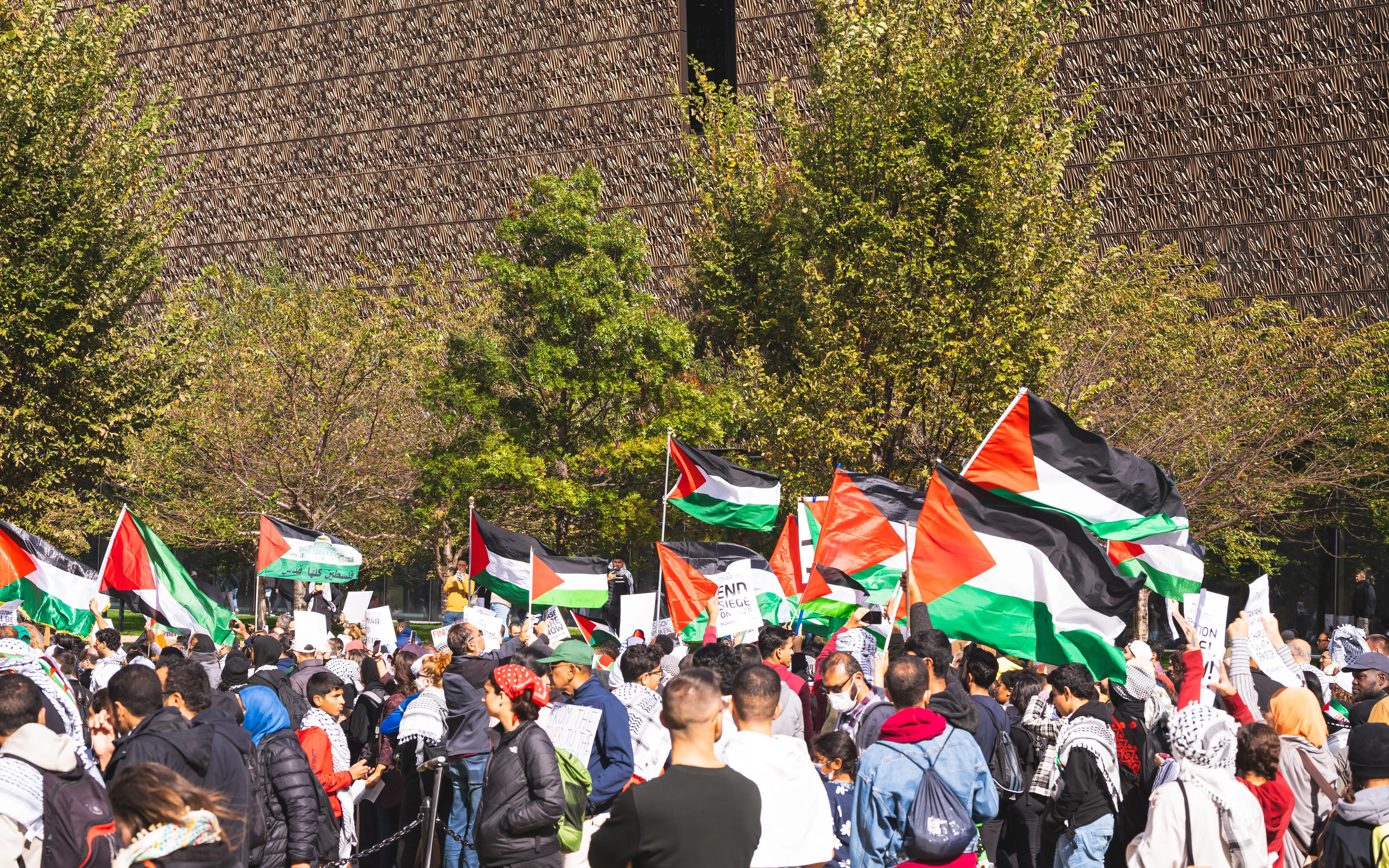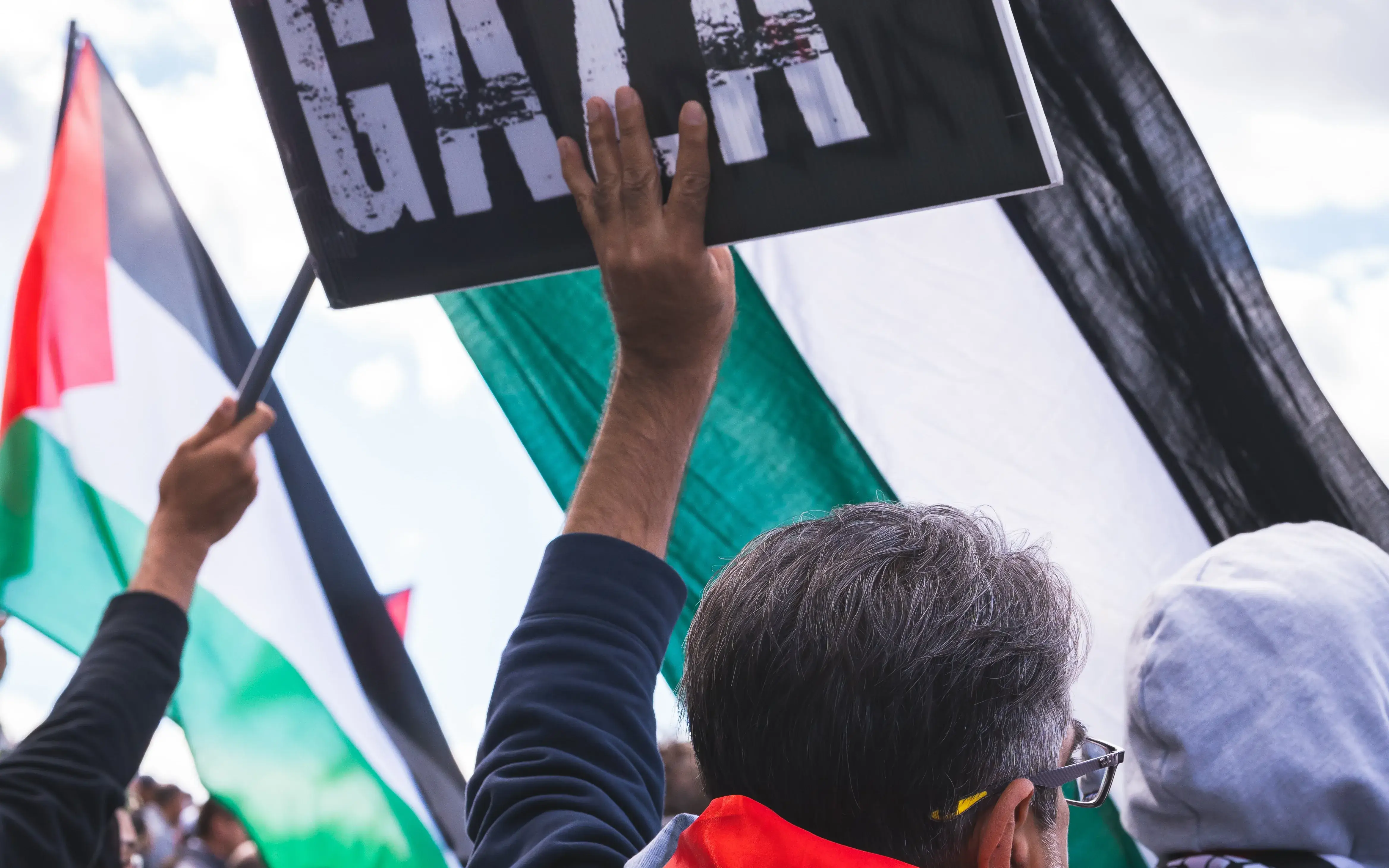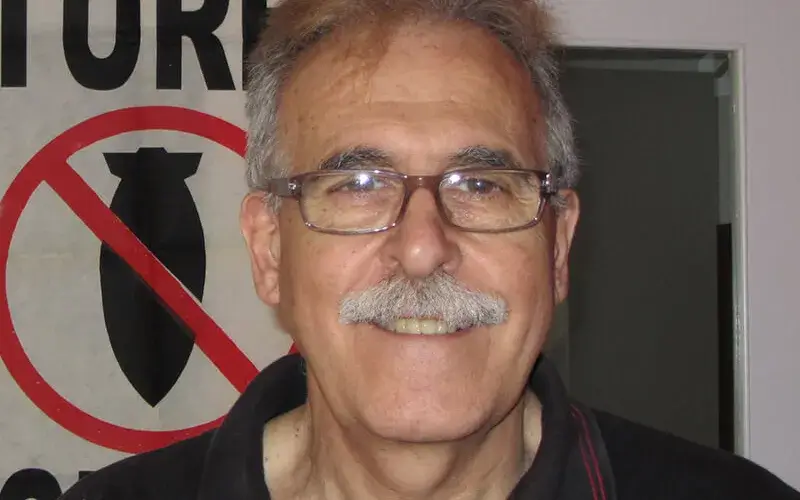Montse Arbós: "Treating Israel like any other state in the world would be a big step in resolving the conflict"
A month after the escalation of violence in Palestine, we speak with the journalist and member of FundiPau, who calls on the international community for more efforts to seek a resolution to the conflict.
The spiral of violence in the Gaza Strip seems unstoppable, and the humanitarian emergency suffered by the population worsens day by day. Faced with such a harrowing scenario, voices advocating for peace remain silenced under the deafening noise of bombs. A month after the start of the violent escalation, we speak with journalist and member of FundiPau, Montserrat Arbós, about the scope of the conflict and the real possibilities of de-escalation and the search for paths to peace.
It's been just over a month since Hamas's attack and the start of the brutal siege in Gaza. When will Israel stop?
In this situation, it's very difficult to make predictions because everything that may seem logical and rational doesn’t serve to satisfy or respond to the interests that the Israeli government may have. When is the punishment considered sufficient? It's not easy to say.
Does it all depend on the release of the hostages?
The Israeli government has said that the bombings will not stop until the hostages are released. However, if we listen to all the mediation experts who have spoken these days, they say that the worst thing that can be done while trying to achieve the release of hostages is to continue via military means and keep bombing. Therefore, what would be logical for the experts is not what is happening here.
Is there any room for negotiation right now?
Negotiation already exists, surely with ups and downs, but it's there. First, from day one, the families of the hostages chose their own mediators because they did not trust the person designated by the Israeli government. There are contacts in various factions, from Qatar, the United States, Israel, and Egypt, working to negotiate with Hamas for the release of some hostages. However, it hasn’t reached a point where the release of all hostages is considered; negotiations continue.
Have there been significant approaches?
It's true that over this month there have been several moments when a substantial release of people seemed imminent, which ultimately did not happen and did not serve to reduce the pace of bombings either. There are negotiations, but as is usual and necessary in these cases, there's also a lot of secrecy. It's complicated to predict the outcome of negotiations.
Negotiation isn’t easy.
One of the things that has been put on the table is that Hamas is not a monolithic organization. It's not a structure in the sense of what we could identify as a state or government, with a series of individuals with names and surnames, and specific responsibilities. Hamas won elections and became the main political formation in the Palestinian parliament and governs Gaza, but the organization, including the armed wing, has various nuclei and leaderships. And this complicates everything even more when it comes to resolving the situation.
What was the motivation behind Hamas's attack?
The initial reactions after the attack and the general surprise pointed to disrupting negotiations between Israel and the Arab world, especially with Saudi Arabia, seen as a geopolitical maneuver by Israel, and also by the United States, to resolve and normalize Israel's integration into the region at the expense of ignoring the Palestinian cause. There was an awareness, from the Saudi government and the negotiating parties, that the visualization of this abandonment would provoke popular discontent. At the time of the attack, the interpretation that was made was that it was a response from Hamas to this.
Is that theory losing strength over the weeks?
The statements of Hamas leaders in claiming and justifying the attack have not mentioned these Abraham Accords at any time. Other issues have been put on the table, such as control of Jerusalem or the release of Palestinian prisoners. It has also been said that within the Strip, Hamas had lost moral and political authority among citizens in recent years due to worsening economic conditions, and the attack could have been a response to a desire by Hamas to regain popular prestige in Gaza and the West Bank.
Many things have been said, and I think it would be reckless on our part to start speculating.
Was the attack prepared well in advance?
Some Palestinian prisoners who carried out the attacks and have been detained have stated in their interrogations that they had years of training, not just one year, as had been said. When and why the attack was decided to be carried out at this specific moment is something I also wouldn’t dare to give a conclusive answer to.
Where might the situation triggered in recent weeks lead?
Americans and some critics of Israel have made it clear that even the Israeli government itself doesn’t quite know. What has been said is that a zone would be created in the upper half of the Strip; it remains to be seen how far this line of occupation will be maintained or if a security buffer zone for Israel, like the one in southern Lebanon, will be created. We don’t know.
There has been talk of a plan to expel Palestinian population to Sinai.
The opening of borders to Egypt and the expulsion of a significant part of Palestinians to Sinai is an option that has not been definitively excluded in the literal sense of the term. Officially, the Egyptian government has flatly denied it. Israel has even proposed a forgiveness of the immense Egyptian debt as a bargaining chip, but it seems difficult. Even more so with elections on the horizon in Egypt, but for now, nothing has been completely ruled out.
Are there movements within Israeli society against the government's actions?
Yes, but they are facing significant repression. A few days ago, for example, it was reported that four members of Balad, a left-wing party of Palestinian-Israeli base, were arrested for attempting to organize a demonstration in Galilee to protest against the war. People have been repressed for posting comments of compassion and understanding with the suffering generated in Gaza. There has also been a very brutal wave of repression in Israeli universities; university professors and doctors have been dismissed...
It doesn’t seem like a very democratic reaction.
Protests have been prohibited, something that I don’t recall happening in previous wars. Ultimately, there is a conscious will to silence critical voices within Israel, something that can perhaps be understood in the sense of closing ranks, but it's the worst thing a democracy can do. Precisely in a situation like this, voices that question what is being done are needed, especially from principles of peace and respect for human rights. We are seeing that the policy being applied from Israel is the opposite.
Can we say that we are facing a new Nakba?
With the images we are seeing these days, everything seems to indicate so. There is an international legal framework, the Geneva Conventions, most of which were approved a year after the creation of the state of Israel, which make it very clear that an occupying power cannot act by altering the urban and social reality of the territories it occupies. Israel has violated this from minute one, and now we see a repetition of this violation, as well as violations of the laws of war.
Therefore, and it has been stated by representatives of the Israeli government, there is a desire to convey the idea that there would be an attempt to force a new Nakba, in all its expression and magnitude for the Palestinian citizens of Gaza.
It seems difficult to imagine a political solution that could establish favorable conditions for peace and coexistence in the area.
The first condition should be an immediate ceasefire, the release of hostages, probably a prisoner exchange – let's remember that there are over a thousand Palestinians under so-called administrative detention, that is, without charges or a release date – and, obviously, the cessation of any settlement operations and violence in the West Bank. And, as a major goal, the end of the occupation.
Are there possibilities for this to happen?
In this conflict, as Shlomo Ben-Ami said, you're pessimistic in analyzing the facts, but still, you want to be optimistic. If we limit ourselves to analyzing the current situation and the logic of discourse, especially from Israel, we can only be pessimistic. And it turns out that, for example, before the Madrid peace process and the Oslo Accords were called, nothing suggested that these agreements would be reached. The powers in the region became aware that a response to the conflict was necessary. It all depends on many factors. Or to think that this escalation has once again put the Palestinian cause on the stage of international public opinion.
I think it's very important to focus on European citizens and North American Jewish groups, who are pressing for discussions about the end of the occupation and war, for a just and negotiated peace. We could think that this could lead to a political process that could result in some kind of territorial withdrawal agreement and some other situation besides permanent conflict.
Is it possible to revert to a previous solution or start over from scratch?
Starting from scratch and starting over is something that I don't think anyone has considered. In fact, the most optimistic scenario we could imagine would be the approval or imposition of some of the latest agreements that have been on unofficial tables, such as the dismantling of some settlements and changes in the Jordanian Cis. This would therefore require dismantling and withdrawing settlers. And it would require an Israeli government with enough strength to dare to do so. If this, before Hamas's attack, already seemed complicated because it was difficult to find in the Israeli political spectrum any party with enough legitimacy and seats to propose it, after October 7, it seems even more difficult.
On the international community level, is anyone seriously working towards resolving the conflict?
I think the role of the Secretary-General of the United Nations, António Guterres, should be highly valued because his discourse is probably what this conflict needs. The international community, and I'm talking about governments, cannot continue to be subject to the historic weight of guilt for the Holocaust and the anti-Semitism that exists in our societies. Starting to treat Israel like any other state in the world would be a big step in resolving the conflict. And this was recently stated by the Deputy Prime Minister of Belgium, for example. However, I don't see a majority line in this direction.
So, what else does this conflict need to move towards a resolution?
Two things that might seem contradictory. On the one hand, silent and discreet work of approximation between the parties. When we talk about the parties, it's necessary to recognize who has the authority to negotiate on behalf of both sides. This is difficult in the Palestinian case, with a totally delegitimized Palestinian National Authority; and on the Israeli side, until a month ago, the government was absolutely disdained by half of its own citizens. Therefore, the situation is not easy.
And on the other hand?
There needs to be a significant change in public discourse, which is much needed. The role of the international community and Europe, starting with the President of the European Commission, Ursula von der Leyen, has been absolutely unacceptable. We need to start analyzing the effect all this has on what we claim Europe proclaims to be and its supposed universal democratic values and respect for human rights. If it was already difficult to walk around the world before this conflict, now, in this sense, it's even worse.
Someone will have to force Israel to change its policy because it seems that now there are few incentives for it to accept a change of position.
Indeed, if we start treating Israel like any other country in the world, we will open the door to a new scenario, where it must be the international community that steps in and helps impose actions on the ground. Both parties need an international community that pushes for negotiation and acts as an honest arbitrator in the claims and historical analysis of the conflict, of how we got here.
And the first thing to do is not to treat the history of both parties equally, and to recognize that there is a side that has had—and still has—the power to make a change in resolving the conflict. Therefore, Israel must be treated as such and all international actions until now must be corrected.








Add new comment